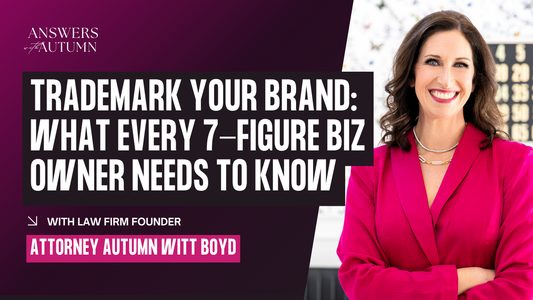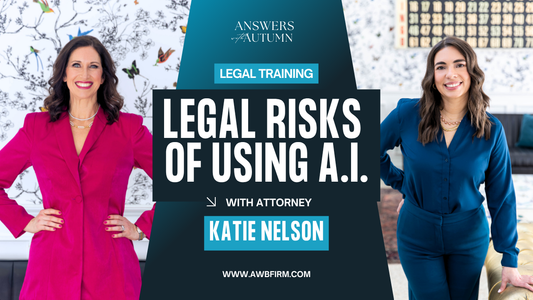When are you violating someone else’s trademark rights? OR, flip-side, when should you get in touch with someone you think might be infringing your trademark and ask them to change it?
How can you interpret your search results when you type your trademark into the USPTO website?
I received this great question in an online business community this week and realized I’ve never dug into how lawyers, courts, and the USPTO evaluate when trademarks are too close.
This is a meaty episode on a complex topic, where I covered:
- Consumer confusion - what trademark law is intended to prevent, and why this matters
- Who has “priority rights” over a trademark in the US
- When might you need to evaluate whether one trademark is too similar to another?
- How to figure out if trademarks are too close
- Does it matter if one trademark has a few extra words?
- What about different spelling?
- When are two logos too similar?
- Does it matter if someone copied a trademark intentionally, or by accident?
- Examples of trademarks that are and are not too similar
- When you need to bring in an experienced IP attorney to help you evaluate a potential trademark infringement
Key takeaway: trademarks do not have to be identical to potentially be infringing!
If you have questions about whether one trademark is too close to another, post them in our Legal Road Map® Facebook group! Just request access and we’ll let you right in.
In our next episodes, we’re diving into the legal issues that come up with running a location-independent business. You will definitely want to tune in if you’ve ever thought about living that laptop life and traveling the world while running your business!
Episode 46: Part 1 - Running a location-independent business legally
Episode 47: Part 2 - Registering as a foreign entity
Episode 48: Part 3 - Taxes
Episode 49: Part 4 - Independent Contractors
Episode 50: Part 5 - Employees
Episode 51: Part 6 - Employee benefits
This podcast is information, not legal advice specific to your situation.


